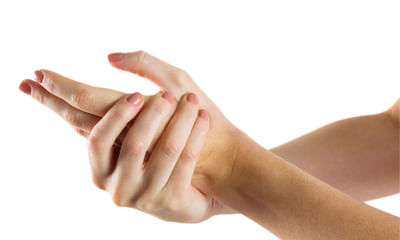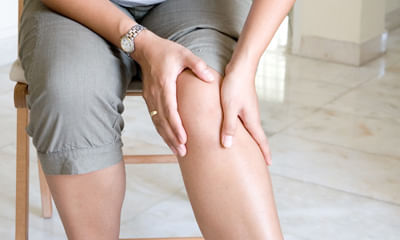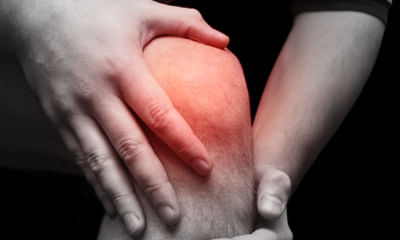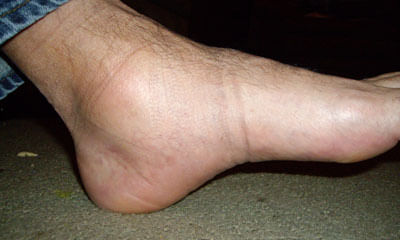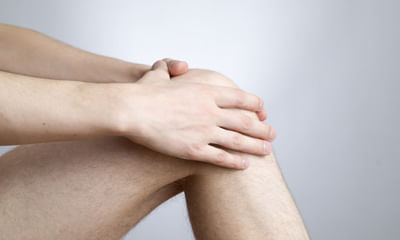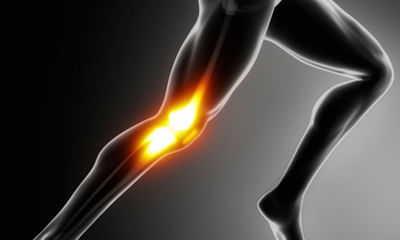Get the App
For Doctors
Login/Sign-up
About
Health Feed
Find Doctors
Health Packages
AllQ&AsTipsQuizzes
Shin Splints Health Feed
Asked for female, 55 years old from Bangalore
Share
Bookmark
Report
Here are some non-medication treatments commonly recommended for heel pain:
rest: avoid activities that aggravate the pain and give your heels time to rest and heal.
Ice: apply ice packs to the affected area for about 15-20 minutes several times a day to reduce inflammation and relieve pain.
Stretching exercises: perform gentle stretching exercises for the calf muscles and plantar fascia to improve flexibility and reduce tension in the heel area.
Footwear: wear supportive shoes w...more
rest: avoid activities that aggravate the pain and give your heels time to rest and heal.
Ice: apply ice packs to the affected area for about 15-20 minutes several times a day to reduce inflammation and relieve pain.
Stretching exercises: perform gentle stretching exercises for the calf muscles and plantar fascia to improve flexibility and reduce tension in the heel area.
Footwear: wear supportive shoes w...more
22 people found this helpful
Asked for female, 55 years old from Bangalore
Share
Bookmark
Report
Hi Lybrate user morning heel pain is due to plantar fascitis ,plantar fasciitis commonly causes stabbing pain that often occurs with your first steps in the morning. As you get up and move, the pain normally decreases, but it might return after long periods of standing or when you stand up after sitting. Visit near by physiotherapy clinic for proper drug free treatment.
19 people found this helpful
Asked for female, 55 years old from Bangalore
Share
Bookmark
Report
It sounds like you may be experiencing a condition called plantar fasciitis, which is characterized by stabbing pain near the heel, especially in the morning or after periods of rest. Plantar fasciitis is a common cause of heel pain in adults, particularly those who are middle-aged or older.
Here are some non-prescription treatment options that may help relieve your heel pain:
over-the-counter pain relievers: nonsteroidal anti-inflammatory drugs (nsaids) such as ibuprofen (advil, motrin)...more
Here are some non-prescription treatment options that may help relieve your heel pain:
over-the-counter pain relievers: nonsteroidal anti-inflammatory drugs (nsaids) such as ibuprofen (advil, motrin)...more
17 people found this helpful
Asked for female, 76 years old from Hyderabad
Share
Bookmark
Report
Hi. Your high esr value is 30 and it is not very high. Although you have pain in legs and bones, may be due to low vit d level or less water intake. Try to do exercises for legs especially streching exercise along with vit d supplements daily. Try to visit your nearest orthopaedic doc or physiotherapist. Thank you.
24 people found this helpful
Asked for male, 33 years old from Hyderabad
Share
Bookmark
Report
Ice therapy would definitely help to reduce the inflammation. We also advise you to use knee cap which would help to prevent the knee from damaging further and also to maintain the quadriceps muscle tone. Stiffness might have developed due to weakness of the ligaments &inflammed cartilage. Specific knee exercises will also help ie. Keeping ball underneath the knee and keep pressing it. That's the simple exercise which will help you to strengthen the knee. You need to consume good protein and iro...more
119 people found this helpful
Health Query
Share
Bookmark
Report
Asked for male, 35 years old from Chennai
Share
Bookmark
Report
Hi lybrate user ,The most common causes include injury, arthritis and normal wear and tear. Depending on the cause, you may feel pain or stiffness anywhere around the ankle. Your ankle may also swell, and you may not be able to put any weight on it. Usually, ankle pain gets better with rest, ice and over-the-counter pain medications.
thanks and regards
thanks and regards
28 people found this helpful
Asked for male, 36 years old from Bangalore
Share
Bookmark
Report
Difficulty sleeping and leg pain, including cramps, can have various causes and may require different approaches for management. Here are some general suggestions that may help improve your sleep and alleviate leg pain:
improve sleep hygiene: establish a regular sleep schedule by going to bed and waking up at the same time every day, even on weekends. Create a relaxing bedtime routine to signal to your body that it's time to wind down, which may include activities like reading, taking a warm...more
improve sleep hygiene: establish a regular sleep schedule by going to bed and waking up at the same time every day, even on weekends. Create a relaxing bedtime routine to signal to your body that it's time to wind down, which may include activities like reading, taking a warm...more
54 people found this helpful
Asked for male, 37 years old from Bhubaneswar
Share
Bookmark
Report
Health Query
Share
Bookmark
Report
Diabetes and knee replacement: diabetes can increase the risk of complications during surgery, including knee replacement surgery. However, many people with well-controlled diabetes can undergo knee replacement surgery safely. It's essential for your mother to discuss her diabetes management with her healthcare provider and the orthopedic surgeon who will perform the knee replacement. They will assess her overall health and determine if she is a suitable candidate for surgery. Close monitoring o...more
Book appointment with top doctors for Shin Splints treatment
View fees, clinic timings and reviews
Ask a free question
Get FREE multiple opinions from Doctors
posted anonymously


